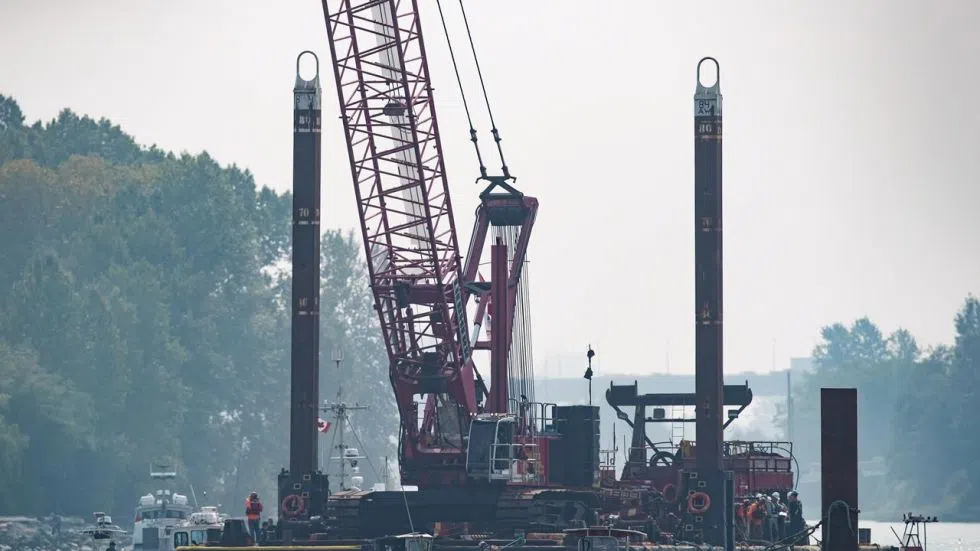
Tug carrying up to 22,000 litres of fuel capsizes in Fraser River off Vancouver
VANCOUVER — The smell of diesel filled the air as crews worked to recover a capsized tugboat that may have spilled as much as 22,000 litres of the fuel in the Fraser River between Vancouver and Richmond on Monday night.
Canadian Coast Guard spokesman Dan Bate said it’s unknown what caused the George H. Ledcor tug to capsize around 10 p.m. Monday, just east of Vancouver International Airport.
There were four people aboard the vessel and all were rescued by the crew on a nearby tug, Bate said.
The capsized vessel is part of a gravel tug-and-tow operation and was towing a gravel barge at the time. The vessel was about three-quarters submerged and had been secured to pilings, Bate said.



